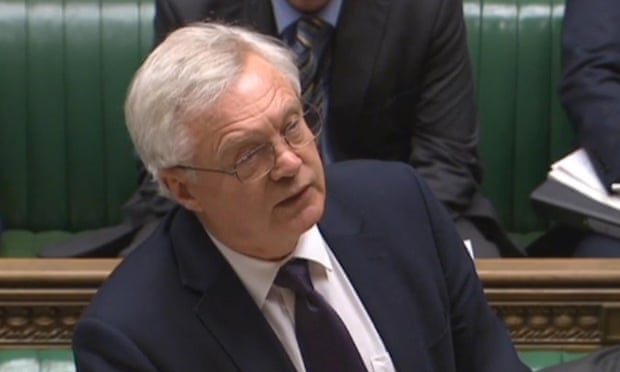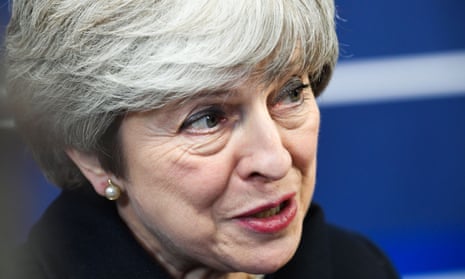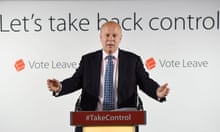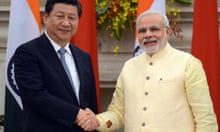Conservative backbench rebels who defeated the government last week are urging Theresa May to reach out to Labour MPs and form a cross-party alliance for a soft Brexit.
As May’s Brexit team prepares to debate Britain’s future relationship with the EU on Monday before a full meeting of her divided cabinet on Tuesday, the dissident MPs believe last week’s vote should embolden her to face down hardline Brexiters.
Eleven Tories defied the leadership last Wednesday to support an amendment aimed at ensuring that parliament gets a vote on the final Brexit deal before Britain leaves the EU.
The defeat, May’s first over Brexit, concerned process rather than substance, but the rebels believe it should embolden the chancellor, Philip Hammond, and his cabinet allies – the home secretary, Amber Rudd, and the business secretary, Greg Clark – by underlining the fact that no parliamentary majority exists for a hard Brexit.
At least two of the amendment’s Tory backers, dubbed mutineers by the Daily Telegraph, have talked to senior figures at No 10, including May’s chief of staff, Gavin Barwell, about the idea of drawing on supportive Labour MPs to form a soft Brexit caucus in the House of Commons.
They believe such an approach would allow the prime minister to argue for a close future relationship with the EU, potentially including continued membership of the customs union, and have advised her to pick off Labour rebels before the frontbench hardens its own policy.
Quick GuideWhat are Brexit options now? Four scenarios
Show
Staying in the single market and customs union
The UK could sign up to all the EU’s rules and regulations, staying in the single market – which provides free movement of goods, services and people – and the customs union, in which EU members agree tariffs on external states. Freedom of movement would continue and the UK would keep paying into the Brussels pot. We would continue to have unfettered access to EU trade, but the pledge to “take back control” of laws, borders and money would not have been fulfilled. This is an unlikely outcome and one that may be possible only by reversing the Brexit decision, after a second referendum or election.
The Norway model
Britain could follow Norway, which is in the single market, is subject to freedom of movement rules and pays a fee to Brussels – but is outside the customs union. That combination would tie Britain to EU regulations but allow it to sign trade deals of its own. A “Norway-minus” deal is more likely. That would see the UK leave the single market and customs union and end free movement of people. But Britain would align its rules and regulations with Brussels, hoping this would allow a greater degree of market access. The UK would still be subject to EU rules.
The Canada deal
A comprehensive trade deal like the one handed to Canada would help British traders, as it would lower or eliminate tariffs. But there would be little on offer for the UK services industry. It is a bad outcome for financial services. Such a deal would leave Britain free to diverge from EU rules and regulations but that in turn would lead to border checks and the rise of other “non-tariff barriers” to trade. It would leave Britain free to forge new trade deals with other nations. Many in Brussels see this as a likely outcome, based on Theresa May’s direction so far.
No deal
Britain leaves with no trade deal, meaning that all trade is governed by World Trade Organization rules. Tariffs would be high, queues at the border long and the Irish border issue severe. In the short term, British aircraft might be unable to fly to some European destinations. The UK would quickly need to establish bilateral agreements to deal with the consequences, but the country would be free to take whatever future direction it wishes. It may need to deregulate to attract international business – a very different future and a lot of disruption.
One rebel told the Guardian: “At the moment, the Labour party is terribly divided and therefore there are quite a large body of independent-minded Labour MPs who would be willing to respond positively to a request to provide support to a government that is seen to be doing the right thing. I think the danger is that if she leaves it too late, the window will close on that.”
Another said they had told Barwell: “If you’re clever, you will reach over the head of [Jeremy] Corbyn and go to those sensible Labour people and put the hard Brexiters back in their box.”
A Tory MP said: “There has to be a discussion in government about what is realistic and what is deliverable, and they have to work with parliament to achieve that. That’s often been the case on European matters.”
A well-coordinated group of prominent Labour MPs, including Chuka Umunna, Chris Leslie and Heidi Alexander, believe they could draw on the backing of the majority of their colleagues to vote for continued membership of the single market and customs union, neither of which are formal party policy.
Umunna said: “There is no doubt that last week’s vote has strengthened the hand of Philip Hammond, Amber Rudd and Greg Clark, the soft Brexit advocates in cabinet. Members from across the whole house will now be looking to them to use their new-found leverage to bring some coherence and sanity to bear on the unsustainable negotiating position of the government.”
The foreign secretary, Boris Johnson, and the environment secretary, Michael Gove, are expected argue for Britain to retain the power to set its own regulations rather than pledging to mirror those of the EU, claiming the UK would otherwise risk becoming what Johnson this weekend called a “vassal state”. His choice of phrase echoed that of another Brexit hardliner, Jacob Rees-Mogg
In an interview with the Sunday Times, Johnson said: “What we need to do is something new and ambitious, which allows zero tariffs and frictionless trade but still gives us that important freedom to decide our own regulatory framework, our own laws and do things in a distinctive way in the future”.
The Brexit secretary, David Davis, has suggested a “Canada plus plus plus” deal, broadly based on the EU’s trade deal with Ottawa, but covering services, including financial services, and allowing closer ties because the volume of trade covered is so much larger.
Such a deal would still be likely to require considerable alignment of rules and regulations, but many Brexiters prefer it to a closer relationship such as that enjoyed by Norway, which is a member of the European Free Trade Area.
Q&AWhat is regulatory alignment?
Show

Inside the EU, both Ireland and Northern Ireland (as part of the UK) are part of the single market and customs union so share the same regulations and standards.
The only way to avoid a hardening of the border after Brexit is to ensure regulations and standards on both sides remain more or less the same in areas like food, medicines and so on.
This might imply a permanent acceptance of EU rules – something that would be anathema to hardline UK Brexiters and the DUP, who reject anything that would "decouple" the North from the UK.
David Davis told parliament that regulatory alignment would not mean adopting exactly the same rules as the EU but "mutually recognised" rules and inspections.
However, an official in Brussels countered that regulatory alignment would mean that the UK would have to implement rules from Brussels without having any influence over them.
What is the government’s plan for ‘regulatory alignment’?
Davis says the UK could continue to follow some rules of the EU’s single market. This would help avoid a hard border, but would also limit the UK’s ability to diverge from EU regulations.
What does the EU think?
Davis thinks the UK and EU can agree to meet the same aims, while achieving them in different ways. The EU believes this could see its standards on workers’ rights and the environment undercut.
Can it even work?
Parliament cannot bind its successors. This principle would mean a deal would never be completely secure for more than five years – putting its feasibility in doubt.
The EU27’s chief negotiator, however, cast doubt on Sunday as to whether the government would be allowed sufficient flexibility to strike such a deal. In an interview with Prospect magazine, Michel Barnier said: “They have to realise there won’t be any cherry picking. We won’t mix up the various scenarios to create a specific one and accommodate their wishes, mixing, for instance, the advantages of the Norwegian model, member of the single market, with the simple requirements of the Canadian one. No way. They have to face the consequences of their own decision.”
Barnier reiterated the EU’s insistence that detailed talks on a future trade deal would only begin after Brexit. Davis has insisted the substance of a trade deal could be in place within the next 12 months.
“The actual negotiations on the future relationship will only begin once the UK leaves the EU,” he said.
Separately, government sources distanced themselves from reports that pro-Brexit ministers were keen to drop the EU’s working time directive, which prevents employees working more than 48 hours a week. The TUC’s general secretary, Frances O’Grady, called the proposal, “a straight-up attack on our rights at work”.
Dissident Tory MPs have faced a furious backlash in their own party and in pro-Brexit newspapers since last Wednesday’s vote.
Dominic Grieve, the former attorney general who tabled the amendment, has blamed the lurid press headlines that followed the debate for a series of death threats he and his colleagues received.
Writing in the Guardian, Grieve says: “As a politician, I should expect sharp challenge from those who disagree with my decisions. But it is troubling that much of the controversy brought in allegations of an intention to sabotage Brexit that is far removed from what we were doing.
“Some of this was fuelled and orchestrated by newspapers that seem entirely disinhibited in the inaccuracies they peddle and the vitriolic abuse they are prepared to heap on those who do anything they consider to be at variance with their version of what Brexit should be. This both obscures the real issues, and encourages an atmosphere of crisis and confrontation between binary positions that leads directly to the death threats that we have received.”
Anna Soubry, another rebel, said such reports fostered a climate of extremism. “That’s the thing that concerns me about all of this. We’re increasingly having a form of politics in which debate is not based on ideas. It’s based on complete and total misconceptions. It’s whipping up a storm by newspapers. It’s poisoning public life.”
One Conservative MP, Nadine Dorries, even called for the 11 who voted against the government whip to be deselected, and some of them fear a backlash in their local parties.
May will update the Commons on last week’s European Council meeting on Monday. She is expected to tell MPs that the government hopes to make rapid progress on agreeing the details of a post-Brexit implementation period, to “give certainty to employers and families that we are going to deliver a smooth Brexit”.
The prime minister will add: “We would propose that our access to one another’s markets would continue as now, while we prepare and implement the new processes and new systems that will underpin our future partnership.”
She will stress that the government hopes it can negotiate and sign trade deals during the transition that will come into force once it ends.









